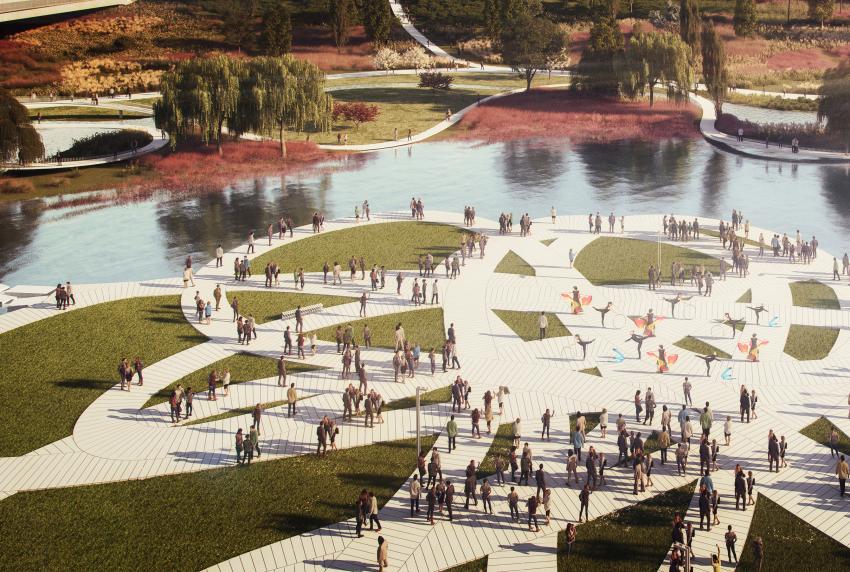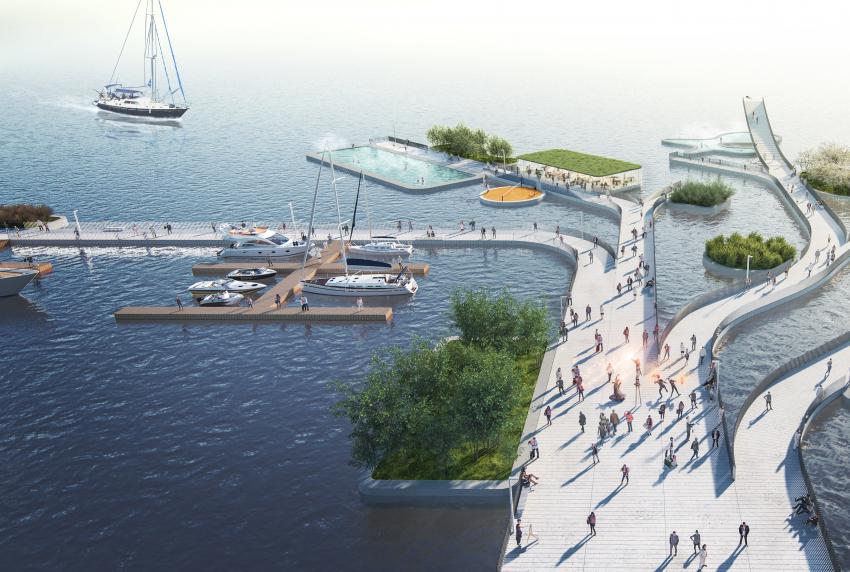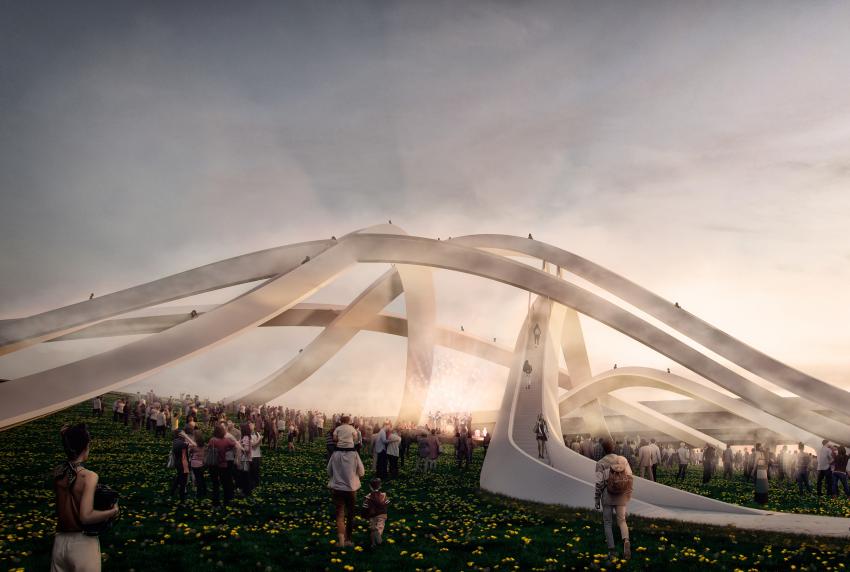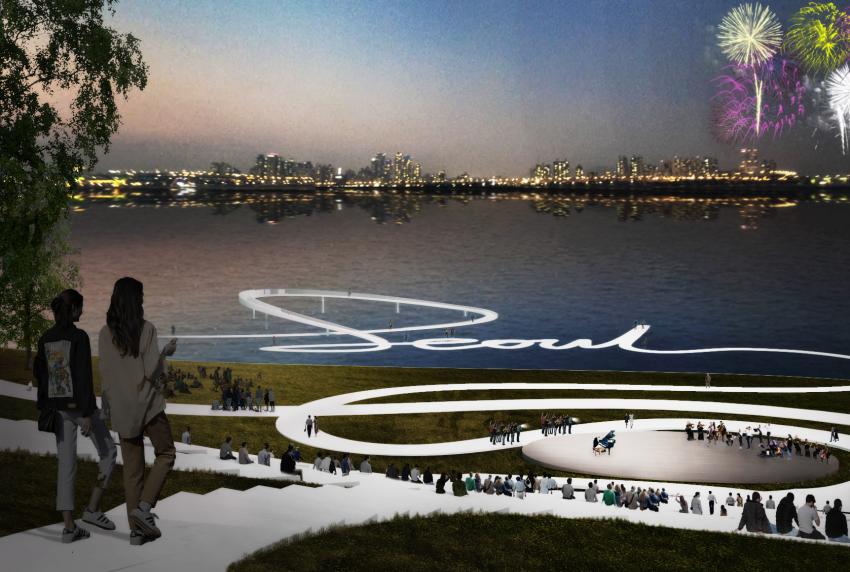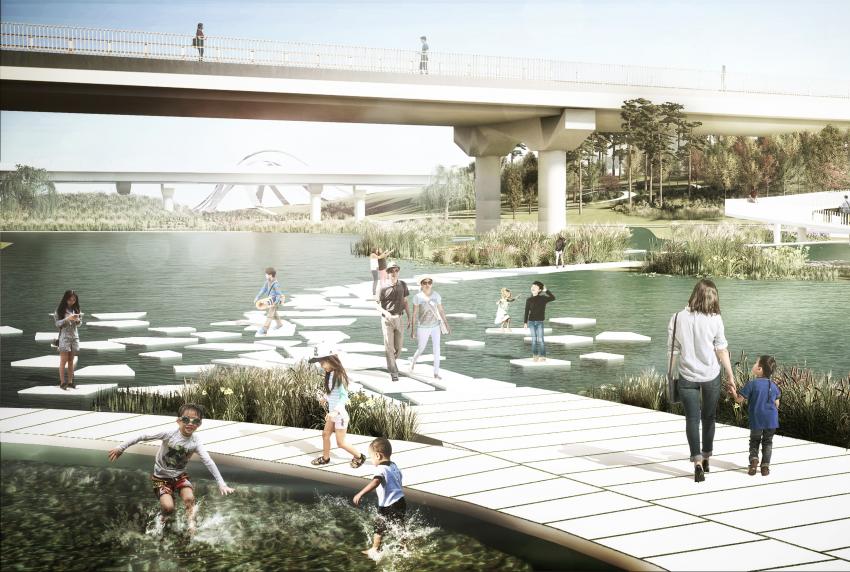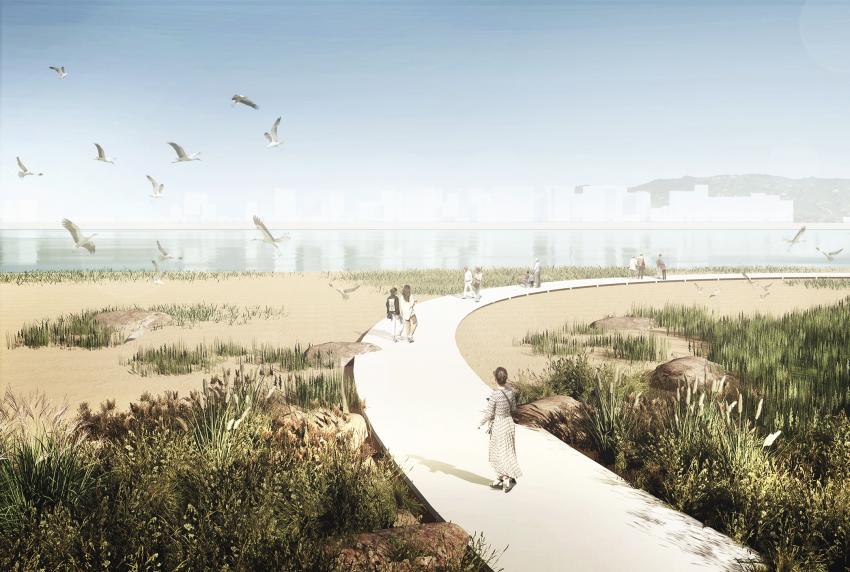Waterfront design transforms disused highways to pedestrian paths
MVRDV has taken first place in a competition to reinvent the Tancheon Valley and waterfront in Seoul with “The Weaves”, a name that refers to the area’s past in silk production and reflects the interconnected paths that wind across the winning design. Commissioned by the Seoul Government, the development is located between the former Olympic Stadium and the rapidly growing central business district in Gangnam, on a site currently dominated by surface car parking and elevated highway structures.
The winning design was completed with NOW Architect working as the local co-architect and Seoahn Total Landscape Architecture. The team created a concept that takes its cue from three considerations: natural ecosystems, pedestrian access, and areas for public activities. The river will be transformed from a straight canal to a meandering stream, with a healthy ecosystem encouraged by native vegetation. In order to allow pedestrians to enjoy this new green space, a network of paths will lead to public plazas, viewing points, amphitheatres and cafes.
The path system is a response to a government plan to decommission and demolish sections of the site’s highways. MVRDV proposed to keep the structures and transform them, developing opportunities for paths at ground level and over the bridges and highways. A feature called the Event Dome is created by a group of raised crossings that combine into a viewing structure, with a semi-covered event space underneath. The family playground leads from a path that frays into many lines, creating climbing structures, benches, and animal figures. Extending out over the Han River, The Seoul Water Path spells the word “Seoul” in a looping script.
MVRDV founding partner Winy Maas stated: “The Weaves is a design that introduces natural landscape combined with exceptional, varied access. It also responds to the local identity. Jamsil is known for its history of silk production and the design recalls the tangled silk threads of its past in a unique and playful way. It becomes an intertwining poem where movement becomes landscape poetry.”
Construction is expected to begin on the development in 2021, with completion planned for 2024.
Lucy Nordberg
TenderStream Head of Research
This competition was first published by TenderStream on 30.07.2019 here
Start your free trial here or email our team directly at customerservices@tenderstream.com
